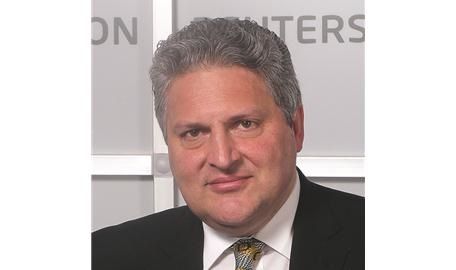HAS MARK YALLOP, the well regarded market pro appointed this past week to chair the UK’s FICC Markets Standards Board (FMSB), just entered the market standards-cum-regulatory equivalent of that inane ‘How many people can you fit in a Mini’ challenge championed for so long by the equally inane Guinness World Records?
With the UK Banking Standards Board (BSB) optically carrying out an identical role to the FMSB (albeit with a broader remit); the Financial Conduct Authority and the Prudential Regulation Authority operating with sharper sets of regulatory teeth and chomping at the bit to use them; global bodies such as the Financial Stability Board, the Basel Committee, IOSCO, the European Commission and a bus-load of EU bodies all working feverishly on global and/or regional initiatives to reform banking from top to bottom; and a series of existing lobby groups and market-practice bodies plugging away, will Yallop and his yet-to-be-appointed CEO actually fit into such a crowded space and be able to garner any relevance? (See: “Ex-UBS banker Yallop to head new FICC standards body”.)
The FMSB’s brief as outlined in the June 2015 policy recommendations coming out of the UK government’s Fair and Effective Market Review were as follows:
• Scan the horizon and report on emerging risks where market standards could be strengthened, ensuring a timely response to new trends and threats
• Address areas of uncertainty in specific trading practices, by producing guidelines, practical case studies and other materials depending on the regulatory status of each market
• Promote adherence to standards, including by sharing and promoting good practices on control and governance structures around FICC business lines
• Contribute to international convergence of standards.
I acknowledge absolutely that it’s critical that we have fair, transparent and effective wholesale markets and that FICC conduct has been appalling and is in need of reform. But it sounds to me like the FMSB is partly being positioned as a regulatory look-out (to be blamed if/when things go wrong?).
Which bit of the above set of functions can the FMSB manoeuvre itself into that couldn’t or shouldn’t technically be carried out by the regulators or by a pre-existing body? Standards bodies, FMSB included, are not regulators or even quasi-regulators. They are at pains to emphasise that. We already have ICMA to promote market standards and practices (over 900 registered delegates for its AGM this coming week in Dublin).
Nor is the FMSB a lobby group. Nor does it or can it represent or speak for individual banks, each of which has its own level of deep interaction with regulators. Those same banks, incidentally, are immersed in cultural re-education programmes driven from the top and are labouring hard to re-calibrate their businesses and their business models in response to challenging market conditions and equally or even more challenging regulatory conditions.
DO MARKET STANDARDS bodies – the hippies of the new banking ecosystem – really have a place? Do we need august bodies to spout platitudes or offer cute pearls of wisdom that basically tell you to do the right thing? Or to make toothless recommendations to banks about how various sub-segments of the FICC product complex should work; banks that will do just that on their own based on their own needs, business orientations and drive to make profits?
The BSB has laid down its marker, saying it wants to set basic standards that go beyond regulatory minimums. Regardless of how upstanding its ethical/moral outpourings might sound, that’s going nowhere fast.
The UK already has a tough body of domestic regulation, led by the rather alarming Senior Managers and Certification Regimes, as well as the long tendrils of EU regulation to contend with. I’m not seeing the place of bridge/consulting organisations. I know the FMSB came out of last year’s FEMR but re-reading its final recommendations, I don’t see the “critical role” Mark Carney attributed to the FMSB in his quote in the press release accompanying Yallop’s appointment.
Whose side will the FMSB be on? I know that sounds cynical and the right answer of course is it’s on the side of fair, transparent and effective wholesale markets. No but really? On the basis that there is never just one answer, will it develop a skew towards the regulator (ie, become the look-out I mentioned above) or a skew to the market away from the yoke of over-bearing regulatory burden? Both are plausible outcomes but the difference between the two isn’t trivial.
The final FEMR report noted that “the professionalism and accountability of individuals in FICC markets remains too low and variable”. That’s a pretty sweeping but at the same time very damning indictment. On a range of possible meanings, either the British government thinks FICC traders are a bunch of Neanderthal morons (a view shared by many others) or that Yallop’s new gig can offer a modicum of improvement through training.
Of the other gaps highlighted by the FEMR final report and where maybe the FMSB can assist is helping raise standards in global markets (including spot FX). Except coming up with effective mechanisms for agreeing, promulgating and adhering to common standards of market practice can be left to ICMA/ISDA. Gaps in regulatory coverage lie firmly in the regulators’ court. The regulatory and surrounding apparatus is burdensome enough. Let’s spare the market yet another body issuing long non-binding reports that go nowhere.
And by the way, the most people ever squeezed into a Mini is 29. (You know you wanted to know!)
